On the occasion of the 30th anniversary of the entry into force of the United Nations Convention on the Law of the Sea (from November 16, 1994 to November 16, 2024), Alternate member of the Party Central Committee, Permanent Deputy Minister of Foreign Affairs Nguyen Minh Vu gave an interview to the press.
- Mr. Permanent Deputy Minister, could you please tell us about the value and role of the United Nations Convention on the Law of the Sea?
As a massive legal document with 320 Articles, divided into 17 Parts, and 9 Annexes, the United Nations Convention on the Law of the Sea (UNCLOS), dubbed the “Ocean Constitution”, sets out a comprehensive legal framework regulating all activities on the seas and oceans, which cover more than 70% of the Earth’s surface. The Convention is also the foundation for countries to cooperate in orderly and sustainable ocean governance. Some of the highlights and important meanings of the Convention can be listed as follows:
First, UNCLOS for the first time comprehensively and thoroughly addresses the issue of the scope and status of maritime zones, creating a basis for countries to exercise their rights and conduct activities at sea. The regime on maritime zones stipulated in the Convention has harmoniously handled the interests of different groups of countries, including coastal countries, landlocked countries or countries with geographical disadvantages.
One of the solutions to reconcile the interests of countries is that the Convention for the first time officially recognizes the "special" regime of the exclusive economic zone, where coastal states have sovereign rights over living and non-living resources, while still ensuring certain freedoms for other states.
In addition, a very creative provision, arguably the most creative, in the Convention is the consideration of the “Area”, including the seabed and subsoil outside national jurisdiction, and the resources here as “common heritage of mankind”. Accordingly, the Convention establishes an international organization to manage activities in the Area to ensure the equitable sharing of economic benefits from the exploitation of resources here for all countries.
The Convention has many provisions on marine environmental protection and marine scientific research - these are completely new contents compared to previous international treaties on the sea of the United Nations (04 Geneva Conventions on the Law of the Sea in 1958). Accordingly, UNCLOS sets out an important legal framework regulating the management of marine resources and the conservation and sustainable use of these resources for future generations. The issue of marine scientific research is also regulated in a harmonious way, balancing the sovereignty and jurisdiction of coastal states with the need for cooperation, the requirement to increase understanding to be able to manage the seas and oceans well.
Finally, the Convention sets out a relatively comprehensive dispute resolution system, which on the one hand reaffirms the obligation to peacefully resolve international disputes stipulated in the United Nations Charter, and on the other hand specifically stipulates peaceful measures to resolve disputes such as conciliation, arbitration or court. With this system, disputes related to the interpretation and application of the Convention can always be resolved in a timely manner, thereby maintaining peace, stability and preventing conflicts. At the same time, the decisions of the judicial bodies established under the provisions of UNCLOS also contribute to clarifying the provisions of the Convention, ensuring the integrity as well as the effective implementation of the Convention.
It can be said that UNCLOS is one of the greatest achievements of international law of the international community in the 20th century. The Convention not only codifies international customary regulations, but also progressively develops international maritime law to meet new development trends in the use and exploitation of seas and oceans. Up to now, the Convention still retains its value and continues to affirm its essential role in maintaining legal order at sea and ocean.
 |
| Permanent Deputy Minister of Foreign Affairs Nguyen Minh Vu answered the press interview. |
- Mr. Permanent Deputy Minister, after 30 years since the Convention came into effect, what contributions has Vietnam made to the development and implementation of the Convention?
Vietnam has always participated actively and responsibly in signing and implementing the Convention. Immediately after the document was adopted and opened for signature, Vietnam was one of the first 107 countries to sign the Convention in Montego Bay (Jamaica) and ratify it before the Convention came into effect. Over the years, in order to implement UNCLOS, Vietnam has gradually improved its legal system on seas and oceans, promulgating legal documents, strategies, policies and plans to serve the country's effective and sustainable use and exploitation of the sea.
In the spirit of being a responsible member of the international community, Vietnam always considers the Convention an important basis for implementing cooperation activities at sea. Vietnam has achieved many achievements in resolving maritime delimitation issues with neighboring countries, notably, together with Thailand, resolving the issue of maritime delimitation in the Gulf of Thailand in 1997 - the first maritime delimitation agreement of ASEAN after the Convention came into effect; being the first and only country to date to have a maritime delimitation agreement with China - delimiting the Gulf of Tonkin in 2000; together with Indonesia, resolving the issue of delimiting the continental shelf and then the exclusive economic zone in 2003 and 2022 respectively, enriching the practice of maritime delimitation according to the provisions of the Convention.
In addition, Vietnam also proactively and actively participates in activities within the framework of international mechanisms established under the Convention, putting forward many initiatives recognized by the international community, thereby gradually enhancing Vietnam's role in the international arena.
Vietnam has held the position of a member of the Council of the International Seabed Authority, made substantial contributions to the process of the International Tribunal for the Law of the Sea providing advisory opinions on climate change and international law, actively participated in the negotiation process and soon signed the Agreement on the conservation and sustainable use of marine biodiversity in sea areas beyond national jurisdiction - the most recent international document related to the implementation of the Convention.
Vietnam also nominated experienced and highly qualified experts to participate in the bodies established under UNCLOS, including the nomination of candidates for the position of judge of the International Tribunal for the Law of the Sea (ITLOS) for the term 2026-2035. At the United Nations, Vietnam and the delegations of 11 countries co-founded the UNCLOS Friends Group with more than 100 member countries from all geographical regions to promote the implementation of the Convention.
It can be seen that, contributing to the formation and development of UNCLOS, Vietnam has always demonstrated its role as an active and responsible member of the Convention, always upholding the value, respecting and fully implementing the Convention, thereby affirming Vietnam's position, role and proactiveness in the international arena.
- So in the coming time, what contributions will Vietnam make to promoting and implementing this Convention, Mr. Permanent Deputy Minister?
In the coming time, Vietnam will be determined to successfully carry out its tasks to continue to demonstrate its respect for, compliance with and full implementation of UNCLOS, and to present the image of Vietnam in the era of national growth, as a trustworthy friend and a responsible member of the international community.
Firstly, Vietnam continues to promulgate policies and perfect the national legal system related to the sea and islands towards sustainable development, meeting the requirements of protecting sea and island sovereignty, and ensuring compliance with international law, including UNCLOS.
Second, Vietnam always upholds the spirit of the rule of law and considers the Convention as the legal basis for conducting activities at sea, including the peaceful settlement of maritime disputes with neighboring countries, towards peaceful and sustainable management of maritime areas, including the East Sea.
Third, Vietnam actively participates and makes substantial contributions to forums on the law of the sea and oceans such as the Conference of States Parties to UNCLOS and the United Nations Ocean Conference, as well as continues to contribute to issues of concern to the international community, including climate change, conservation and sustainable use of resources and biodiversity in the ocean.
Fourth, Vietnam also calls on countries to continue to ratify and participate in the Convention, while promoting the goodwill and full implementation of the Convention's provisions so that UNCLOS can further promote its role as a comprehensive legal framework regulating all activities at sea and in the ocean.
Finally, Vietnam will continue to further strengthen cooperation with international legal agencies, especially specialized agencies on oceans and the Law of the Sea, to make it more in-depth and substantive.
Thank you very much, Deputy Minister!
Source: https://thoidai.com.vn/cong-uoc-lien-hop-quoc-ve-luat-bien-nguyen-ven-gia-tri-tao-nen-tang-cho-quan-tri-bien-va-dai-duong-207317.html


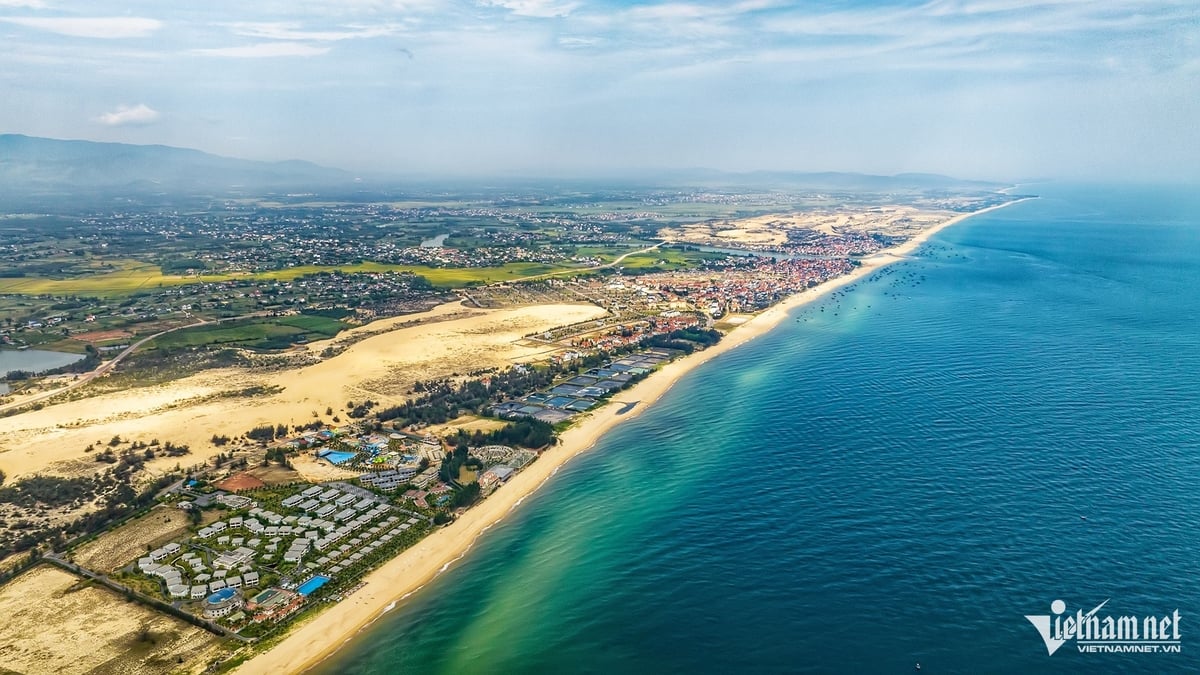
![[Photo] Prime Minister Pham Minh Chinh chairs Government Standing Committee meeting on Gia Binh airport project](https://vphoto.vietnam.vn/thumb/1200x675/vietnam/resource/IMAGE/2025/5/10/6d3bef55258d417b9bca53fbefd4aeee)

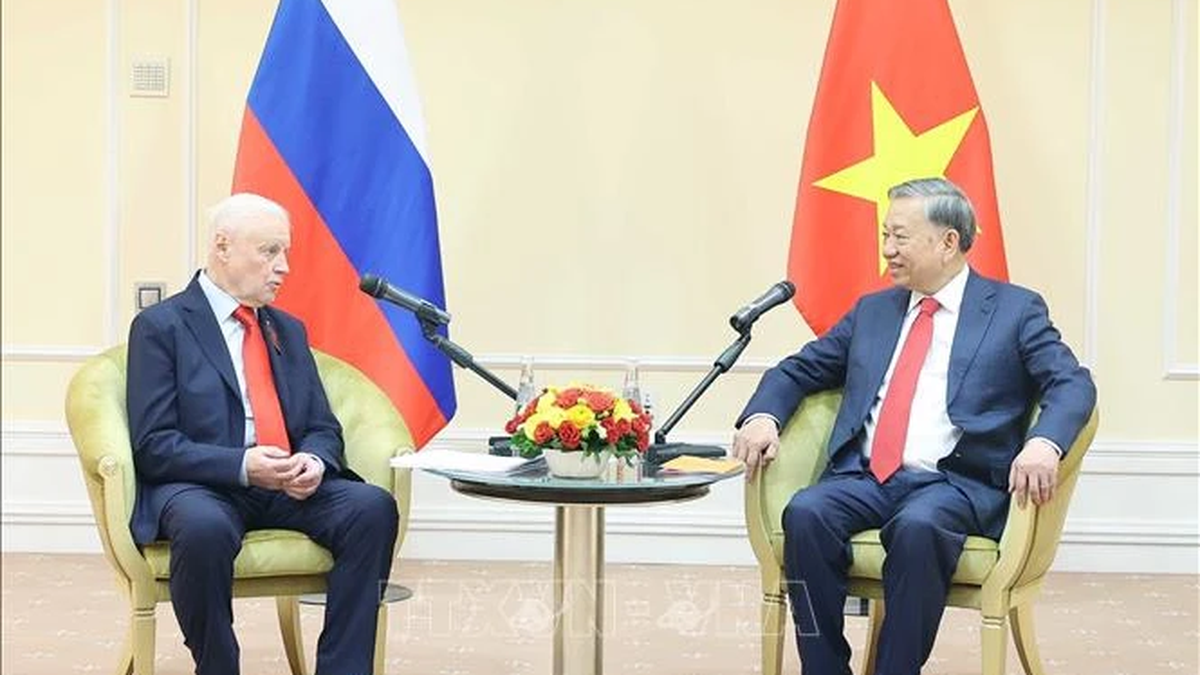
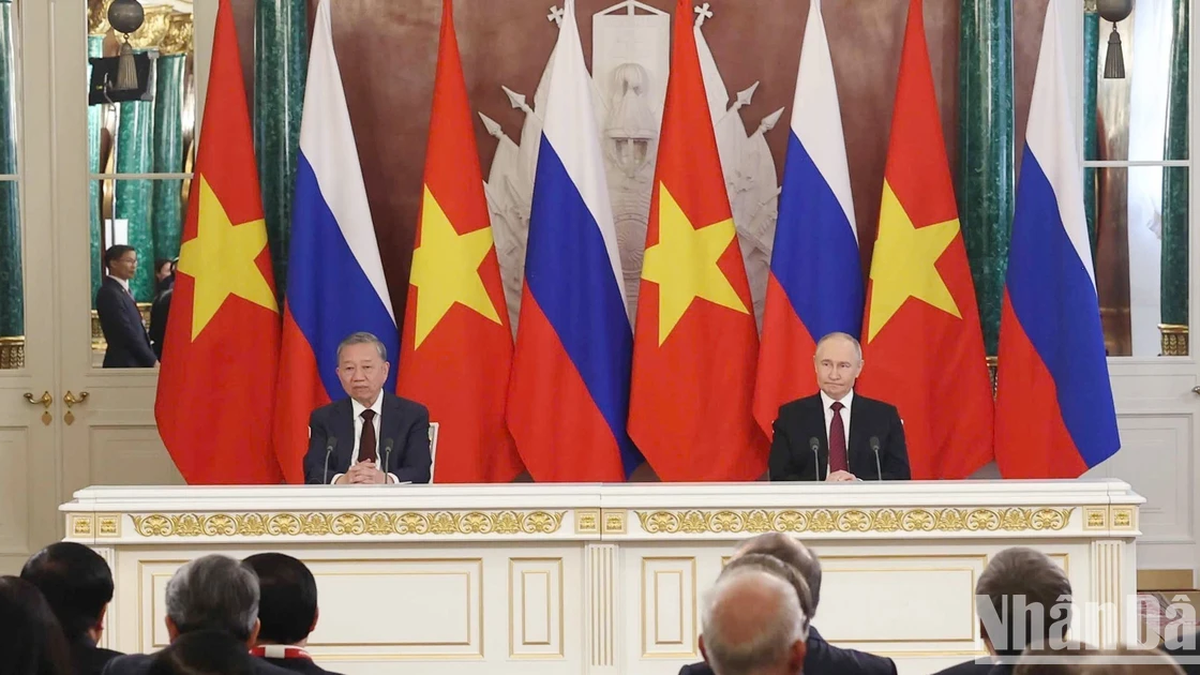



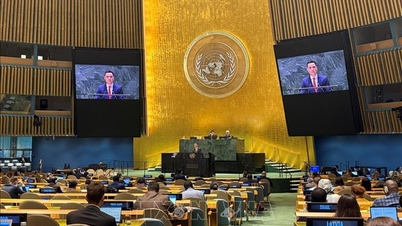

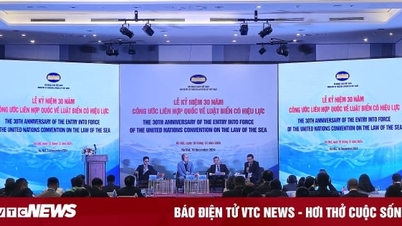




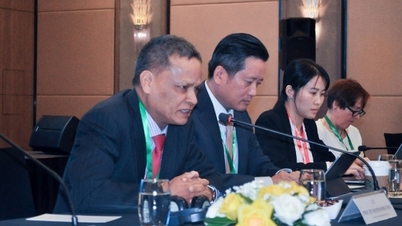
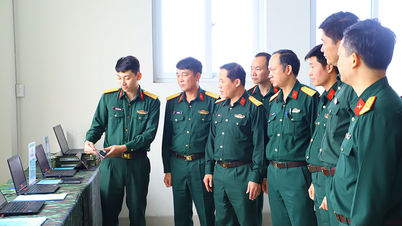
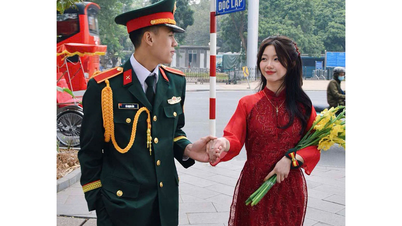

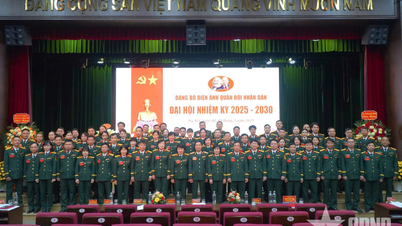
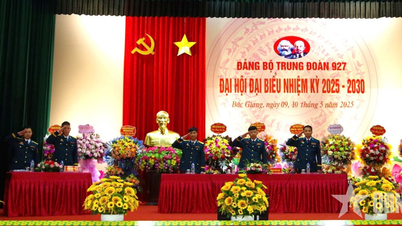
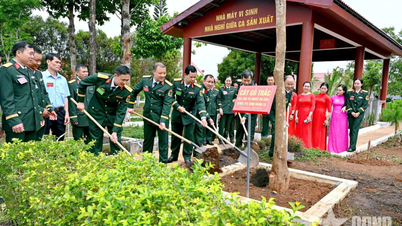







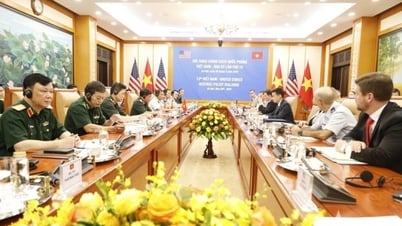
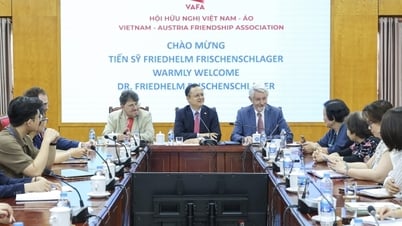




































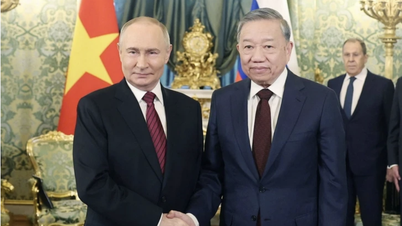

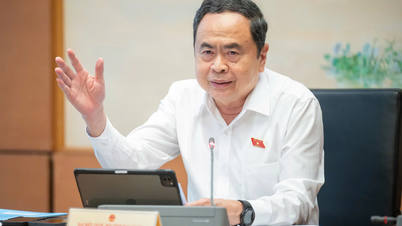
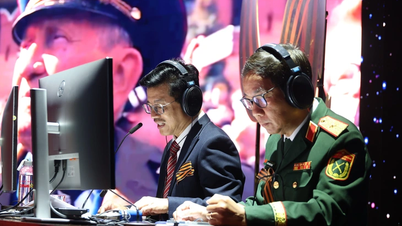









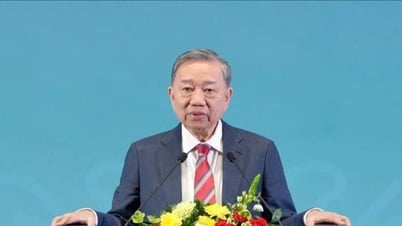



















Comment (0)